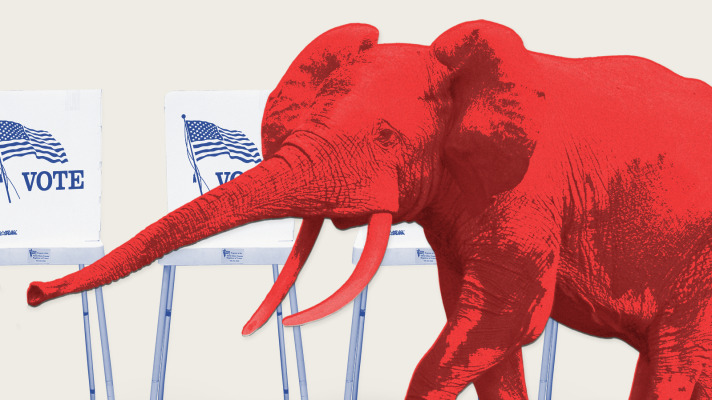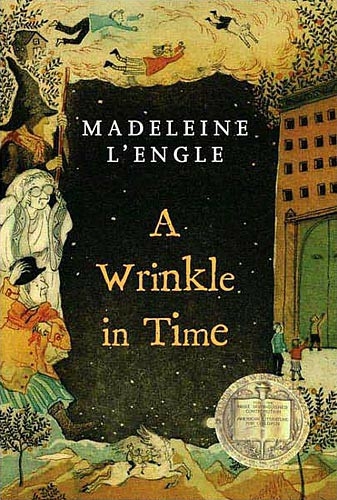GRANBURY, Texas – Weston Brown was scrolling through Twitter last month when he came across a video that made his chest tighten. A woman showed it at a school board meeting in North Texas, where she called on district leaders to ask for forgiveness.
“Repentance is the word that’s on my mind,” she said near the start of the video.
For months, the woman in the clip had demanded that the Granbury Independent School District ban dozens of books from its libraries that contained depictions of sex or LGBTQ themes — books she believed could be harmful to the hearts and minds of students. Unsatisfied after a district committee on which she served voted to remove only a handful of titles, the woman filed a police report in May accusing school employees of providing pornography to children, sparking a criminal investigation by Hood County.
In the video Weston Brown found online, she now told the school board that a local Christian pastor, rather than librarians, should decide what books should be allowed on public school shelves. “He would never steer you wrong,” she said.
The clip ended with the woman stepping away from the podium and the audience showering her with applause.
Weston Brown, 28, said his heart raced as he watched and rewatched the video — and not just because he’s against censorship. He immediately recognized the speaker.
It was his mother, Monica Brown.
The same woman, he said, who had removed pages from science books when he was a child to prevent him and his siblings from seeing illustrations of male and female anatomy. The woman who had always warned that reading the wrong books or watching the wrong movies could open the door to sinful temptation. And the one, he said, that had effectively cut him off from his family four years ago after he came out as gay.
“You are not invited to our house for Thanksgiving or any other meal,” his mother had written to him in November 2018, eight months after he disclosed his sexual orientation to his parents.
More book bans: Florida nonprofit group wants children’s book ‘Everywhere Babies’ banned for LGBTQ images
Most banned books: Book bans are on the rise. What are the most banned books and why?
Weston Brown, who lives with his partner in San Diego, had long since come to terms with the idea that he would never again have a meaningful relationship with his parents. He still loved them and desperately missed his younger siblings, he said, but he was done trying to convince his mother and father that his sexuality was not a choice or a sin. He was done challenging their religious beliefs and asking them to change.
Until he saw the video of his mother at a school board meeting.
In recent months, Weston Brown has watched as the same fundamental disagreements that divided his family have begun to divide entire communities. Fueled by a growing movement to assert conservative Christian values at all levels of government, activists across the country have fought to remove queer-affirming books from schools, repeal the right to same-sex marriage, shut down LGBTQ Pride parties, and pass state laws , which limits how teachers can discuss gender and sexuality.
Just as the seemingly intractable arguments over America’s pandemic response and conspiracy theories about the 2020 election have led to strained personal relationships in recent years, these clashes over gender and sexuality have pitted neighbors against neighbors, parents against teachers and — in Brown’s case. – a son against his mother.
“It was one thing when my parents’ faith caused this rift between us, and it was just a family matter,” Weston Brown said. “But now when I see her applying those same views to public activism, at a time when so many basic rights are being challenged, I couldn’t be quiet about it.”
Monica Brown, 51, who has homeschooled all nine of her children and serves as director of a private Christian education cooperative, declined to be interviewed or answer written questions. In a series of email exchanges with NBC News, she initially invited a reporter to discuss the article over dinner at her home in Granbury, but in a subsequent message she said her husband would not allow the meeting, adding: ” I have been informed not to speak to you at all.” Her husband also declined to be interviewed.
Publicly, Monica Brown has denied targeting LGBTQ books. At a recent school board meeting, she said her only goal has been to protect children from sexually explicit content — gay or otherwise.
“There is nothing LGBTQ involved in this,” she said. “There are LGBTQ books that are sexually explicit, yes. They are also wrong. If they’re between men and men, women and women, cats and women, dogs and women, whatever, it’s not appropriate educational content.”
That statement, however, is inconsistent with many of the books she has marked for removal at Granbury. Several of the titles on her list contain LGBTQ stories, but contain no sexually explicit content. That includes “Drama” by Raina Telgemeier, a graphic novel depicting gay and bisexual characters navigating the routine awkwardness of elementary school crushes.
Of the nearly 80 library books Monica Brown and her supporters want removed, 3 out of 5 contain LGBTQ characters or themes, according to an NBC News analysis of titles posted on GranburyTexasBooks.org, a website where the activists has collected parent reviews of books they want banned. In addition to sexually explicit content, the site calls for books to be removed for “normalizing lesbianism”, focusing on “sexual orientation” and promoting “alternative gender ideologies”.
Monica Brown has also signaled anti-LGBTQ views in formal library book challenges she has sent directly to Granbury school officials, according to copies of the forms obtained through a public records request. In one instance, she criticized a biography of notable women, in part because it included the story of Christine Jørgensen, a trans woman who made national headlines in the 1950s for speaking openly about her gender reassignment surgery. She suggested replacing that book with a Christian biography series about girls and women who used their talents to serve God — “biographies of truly great Americans,” she wrote.
After watching the video of his mother at the school board last month, Weston Brown skimmed through excerpts of the books she would have pulled. It appeared to him that she and her followers were pushing public schools to follow some of the same strict religious ideologies that he says he suffered from as a child.
He thought of all the students, at Granbury and across the country, who could benefit from reading the types of books that were forbidden to him growing up.
With tears in his eyes, he began writing a tweet on the afternoon of July 3.
“This is my mom,” he wrote with a link to the video of the school board meeting. “It’s heartbreaking to see your advocate for erasing queer representation. Coming up on the 5 year anniversary of being effectively cut off from my family and siblings after coming out in 2018.”
He hesitated, knowing he would be reopening old wounds for the world to see. He didn’t want to do anything to hurt the woman who had raised him, he said.
But are you trying to get librarians arrested?
Weston Brown added another line to his post – “Much love to them standing and pushing back for representation” – along with a rainbow flag emoji. And then he pressed send.
‘The rejection you have chosen’
Weston Brown has many fond memories growing up in the suburbs between Dallas and Fort Worth, about an hour from his parents’ current home in Granbury. See the article : Book Pages: Finding an old list of favorite books hidden on the shelves. He recalled summer days splashing in their backyard swimming pool, family ski vacations to Colorado and hours spent at the public library with his mother, who fostered his love of reading.
“I didn’t really have friends growing up, and making new friends via fictional characters was always something I looked forward to,” he said. “It was a beautiful way to leave my world and go to a better place.”
But in a conservative Christian home, some content was forbidden.
Although the Brown family’s bookshelves were filled with classics such as books by C.S. Lewis’ “Chronicles of Narnia” series, many popular titles were banned, Weston Brown said. That included the Harry Potter series, which he said his mother, like many other conservative Christians, considered a satanic depiction of witchcraft.
Weston Brown, the oldest child, said his mother also did her best to protect him and his siblings from words or images that might arouse sexual curiosity. He remembered being told to look down at the floor every time they walked through the lingerie section of department stores. Even as a child, he said, he was more intrigued by the marketing images displayed in the men’s section — though he dared not tell anyone.
The lessons of purity did not stop after he grew up.
In 2015, when he was 20 and still living with his parents, he returned home late one night after seeing “Avengers: Age of Ultron,” a PG-13 superhero movie his mother disapproved of. When he walked into his kitchen, he said, he found two pans of brownies waiting for him, along with a stack of articles printed from the Internet about the corrosive influence of Marvel comics and movies.
A pan of brownies was normal. The other had a label warning that it had been baked with a small amount of dog poop mixed in.
“Poo anyone? Just a little?” Monica Brown later wrote when she posted a photo of the brownies on Facebook. “How much yuck is too much?”
The moral of the illustration, popular among some evangelical Christians: If you wouldn’t eat brownies that can harm your body, why would you expose yourself to movies, books or music that can harm your soul?
Her son was disgusted, but he did not withdraw from the lesson.
“She made her point,” he said, “and we never talked about it again.”
It was the same year that the US Supreme Court legalized same-sex marriage – a tectonic cultural development that upset many evangelical Christians. Afterward, Monica Brown frequently posted on social media about the “dangerous” gay agenda she believed was marching on mainstream American society. She warned in posts that Disney was secretly pushing LGBTQ lifestyles on children in movies like “Toy Story 4” and shared a link to a video that claimed pop star Katy Perry conspired with satanic forces to convince teenagers to embrace homosexuality.
Weston Brown said he did not challenge his mother’s views while living with her. He had spent years struggling to reconcile his desires with the religious values that his parents had instilled in him – trying to convince himself that the butterflies in his stomach every time he was around one of the boys at church , was just something friends felt for each other. . It didn’t help, he said, that he had had no meaningful sex education as a teenager — just a blanket instruction to abstain until marriage — and no understanding of LGBTQ identities or what those letters even meant.
But in 2018, he was 23, living on his own and finally confident enough to tell his parents what he had always known about himself.
“Dear Mom and Dad, I am writing this to share something that I have wanted to share with you but have been holding back for a long time,” he wrote in an email to his parents in February 2018. “It is with great joy relief, clarity and vulnerability that I share this with you: I am gay.”
He concluded the note: “I pray that you receive this with an open mind.”
That prayer, he said, went unanswered.
Over the next year and a half, he said, his parents tried to convince him he was wrong. Through a series of emotional lunch meetings, phone calls and texts, he said, they encouraged him to see a Christian counselor in hopes that he could learn to overcome his homosexual urges. They invited Weston Brown to church—the one place they would allow him to see his younger siblings—and openly wondered what corrupting influences might have led their son down this sinful path.
“You are not rejected, not at all, and never will be,” his father, James Brown, wrote to him in October 2019, more than a year after he came out. “The way of life you have chosen goes against God, and therefore it is the rejection you have chosen.”
His father added, “Have you ever considered the pain you put your mother and I through?”
‘A raging fire’
Monica Brown’s campaign to rid schools of books she considers obscene began late last year with a trip to the Granbury Middle School library, which sometimes hosts robot competitions in which her homeschooled children have competed. Read also : Prohibited books: What titles are counted and why.
She started flipping through a few books while there and was disturbed by what she found, according to a May interview she did with The Blue Shark Show, a local far-right Internet talk show hosted by a former Republican state legislature.
“What I saw was negative, dark — the stuff nightmares are made of,” Monica Brown said, without sharing more details.
Her sudden interest in library books coincided with a wave of similar book ban attempts across the country last year amid a growing conservative backlash against school programs and lessons about racism, gender and sexuality.
The books that have attracted the most intense scrutiny, both in Granbury and nationally, are mainly young adult novels and memoirs that contain passages of explicit descriptions of sex or rape, especially those with LGBTQ themes and characters. Defenders of these books argue that any sexual content is presented in the context of broader narratives that help teens understand and process the world around them.
The fight has been particularly heated in Texas, where Republican state officials, including Gov. Greg Abbott, have gone so far as to call for criminal charges against any school employee who gives children access to novels, memoirs and sex-educated books that some conservatives have labeled as “pornography”.
Monica Brown did not say in her talk show interview whether she had reported her concerns to the school district. But in early January, Granbury’s superintendent of schools, Jeremy Glenn, called a meeting of district librarians and said he had started getting complaints about library books.
“Let’s call it what it is, and I’m doing a lot of this,” Glenn told the librarians, according to a secret recording of the meeting obtained and first reported by NBC News, ProPublica and The Texas Tribune. March. “It’s transgender, LGBTQ and sexy – sexuality – in books. That’s what the governor has said he’s going to prosecute people for, and that’s what we’re pulling out.”
When asked about his comments, Glenn released a statement in March saying the district was committed to supporting students of all backgrounds. And while he said the district’s primary focus is educating students, Glenn said “the values of our community will always be reflected in our schools.”
In the days following the meeting, district staff pulled more than 130 books from school library shelves and announced the formation of a volunteer committee to review them.
Monica Brown was one of the first residents to be appointed. From the start, she felt the process was a sham, she said in her Blue Shark interview. The first two meetings were held at times she could not attend, she said, and by the time she arrived at the third meeting, the committee had already voted to put most of the books back on the shelves.
“That meeting was completely disrupted in the sense that we didn’t vote at all because I kept asking questions,” she said.
In the end, over objections from her and another member, the volunteer committee voted to ban only three books: “This Book Is Gay,” an upcoming guide for LGBTQ teens by transgender author Juno Dawson that contains detailed descriptions of sex ; “Out of Darkness,” by Ashley Hope Pérez, a young adult novel about a romance between a Mexican-American girl and a black boy that includes a rape scene and other mature content; and “We Are the Ants,” by Shaun David Hutchinson, a novel about a gay teenager that includes explicit sexual language.
The district returned dozens of other titles to the shelves. Several of the books had no sexual content, the committee found. As for the others, a majority of committee members believed that any description of gender was age-appropriate when read in full context.
Monica Brown was outraged, she said on the Blue Shark Show in early May.
“I think they’re breaking the law,” she said.
That same week, she put that faith to the test. On May 2, she and another disillusioned member of the book committee filed a police report with a Hood County sheriff, alleging the district made pornography available to students, according to a copy of the incident report. Four days later, Hood County constables visited Granbury High School to investigate the allegation.
In a letter sent to NBC News on Wednesday and dated Aug. 1, Jordan said his office could not release additional information about the case because the investigation remained active. In a statement issued in May, Glenn, the Granbury superintendent, said the school district was cooperating with law enforcement.
In the months since, Monica Brown has continued to keep up the pressure by speaking at every school board meeting, filing more than a dozen additional book challenges and, in the process, becoming a prominent and polarizing figure in Granbury.
Monica Brown’s struggle has also come at a personal cost. In social media posts and public remarks, she has said the hours spent going through the library’s books have required her to sacrifice time with her family and have led to a barrage of personal attacks from residents who oppose her efforts.
In May, Adrienne Martin, a Granbury parent and chair of the Hood County Democratic Party, recorded on her phone when she confronted Monica Brown outside a school board meeting.
“You want librarians arrested,” Martin said as Monica Brown left. “It’s fascism. You’re a fascist.”
At a board meeting last month, Monica Brown tried to explain why she’s fought so hard to remove books from a school district her children don’t attend. She’s doing it, she said, for all the other kids.
“I feel like it’s a raging fire,” she told the board, “and I have a water gun.”
‘I pray for you’
After Weston Brown’s initial post criticizing his mother, he fired off several tweets condemning her efforts in Granbury. See the article : How students and scholars come together for authentic and inclusive scholarship.
It wasn’t long before the posts had reached his parents. His father wrote to him to demand that he apologize to his mother.
“We have not come out against the LGBT community,” his father wrote, insisting that their efforts at the Granbury schools were focused on “pornography” and nothing else. “I know you are hurt by our decisions, but we are hurt too and have been ever since you said you were gay.
“We have not been hateful to you,” added his father.
Weston Brown replied: “All I can say is I feel sorry for you and wish you the best.”
Soon, opponents of Monica Brown’s efforts began posting images of her son’s tweets on Granbury community Facebook groups — making a family’s private rift public.
Monica Brown never publicly addressed her son’s tweets, but in response to a Facebook post about them, she wrote: “You can believe what you want about me. In the meantime, I will continue to do my best to end my life for a audience of One.”
A few weeks later, she finally got in touch with her son. Two days after NBC News contacted her to request an interview, she texted him to tell him she had no plans to share “personal family information” with a reporter.
“I didn’t come out against LGBTQ at all — ever,” she wrote, before adding, “I love you and I’m praying for you.”
Weston Brown studied the message and thought back to all the hours he had spent begging her to accept him for who he is instead of trying to control and change him. It hurt that the woman who had given birth to him told him that his sexual orientation was an abomination.
He didn’t want to revisit that trauma, he said. He just wanted his mother to stop pushing her beliefs on other people’s children.
Weston Brown reread his text once more. He started to write a reply and then stopped. Instead, he closed the message and put his phone aside.
He had already told his mother everything that needed to be said.
This article was produced in partnership with NBC News. The Texas Tribune is a nonprofit, nonpartisan media organization that informs — and engages with — Texans about public policy, politics, government and statewide issues.
For LGBTQ mental health support, call the Trevor Project’s 24/7 toll-free support line at 866-488-7386. You can also reach a trained crisis counselor through the National Suicide Prevention Lifeline by calling or texting 988, or you can reach the crisis text line by texting “HOME” to 741741.






